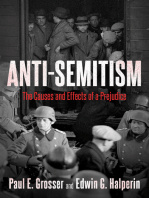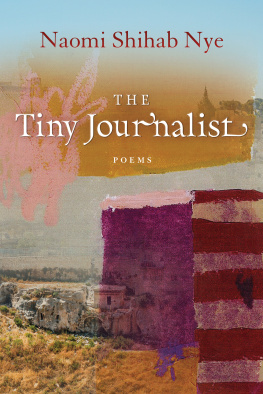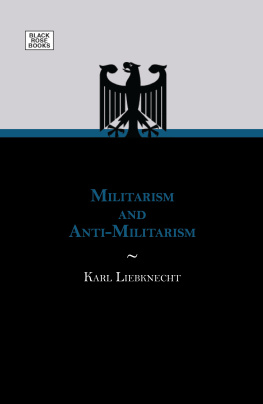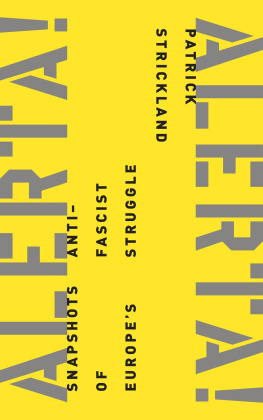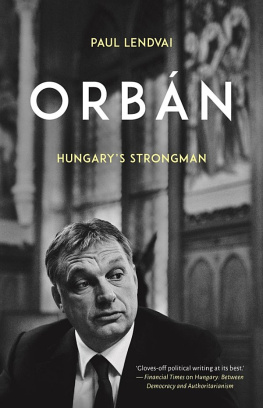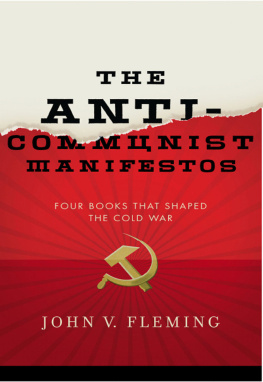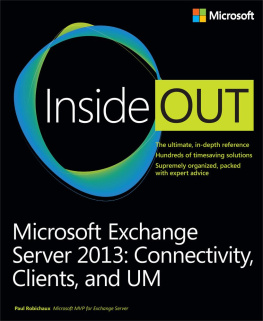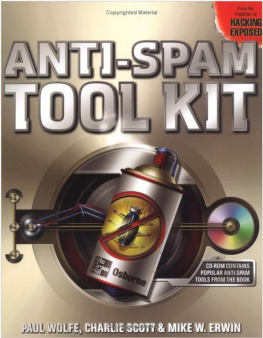Paul Reitter - The Anti-Journalist
Here you can read online Paul Reitter - The Anti-Journalist full text of the book (entire story) in english for free. Download pdf and epub, get meaning, cover and reviews about this ebook. year: 2020, publisher: University of Chicago Press, genre: Detective and thriller. Description of the work, (preface) as well as reviews are available. Best literature library LitArk.com created for fans of good reading and offers a wide selection of genres:
Romance novel
Science fiction
Adventure
Detective
Science
History
Home and family
Prose
Art
Politics
Computer
Non-fiction
Religion
Business
Children
Humor
Choose a favorite category and find really read worthwhile books. Enjoy immersion in the world of imagination, feel the emotions of the characters or learn something new for yourself, make an fascinating discovery.

- Book:The Anti-Journalist
- Author:
- Publisher:University of Chicago Press
- Genre:
- Year:2020
- Rating:4 / 5
- Favourites:Add to favourites
- Your mark:
- 80
- 1
- 2
- 3
- 4
- 5
The Anti-Journalist: summary, description and annotation
We offer to read an annotation, description, summary or preface (depends on what the author of the book "The Anti-Journalist" wrote himself). If you haven't found the necessary information about the book — write in the comments, we will try to find it.
The Anti-Journalist — read online for free the complete book (whole text) full work
Below is the text of the book, divided by pages. System saving the place of the last page read, allows you to conveniently read the book "The Anti-Journalist" online for free, without having to search again every time where you left off. Put a bookmark, and you can go to the page where you finished reading at any time.
Font size:
Interval:
Bookmark:

The Anti-Journalist
KARL KRAUS AND JEWISH SELF-FASHIONING IN FIN-DE-SICLE EUROPE
Paul Reitter
The University of Chicago Press
CHICAGO & LONDON
The University of Chicago Press, Chicago 60637
The University of Chicago Press, Ltd., London
2008 by The University of Chicago
All rights reserved. No part of this book may be used or reproduced in any manner whatsoever without written permission, except in the case of brief quotations in critical articles and reviews. For more information, contact the
University of Chicago Press, 1427 E. 60th St., Chicago, IL 60637.
Published 2008
Paperback edition 2020
Printed in the United States of America
29 28 27 26 25 24 23 22 21 20 1 2 3 4 5
ISBN-13: 978-0-226-70970-3 (cloth)
ISBN-13: 978-0-226-75457-4 (paper)
ISBN-13: 978-0-226-70972-7 (e-book)
DOI: https://doi.org/10.7208/chicago/9780226709727.001.0001
Library of Congress Cataloging-in-Publication Data
Reitter, Paul. The anti-journalist : Karl Kraus and Jewish self-fashioning in fin-de-sicle Europe / Paul Reitter.
p. cm.
Includes bibliographical references and index.
ISBN-13: 978-0-226-70970-3 (cloth : alk. paper)
ISBN-10: 0-226-70970-1 (cloth : alk. paper)
1. Kraus, Karl, 18741936Political and social views. 2. JewsIdentityEuropeHistory19th century. 3. Antisemitism in the pressEuropeHistory19th century. 4. German literatureJewish authorsHistory and criticism. 5. Jewish pressEuropeHistory19th century. 6. Jewish journalistsEuropeHistory19th century. I. Title.
PT2621 .R27Z765 2008
838.91209dc22
2007020594
 This paper meets the requirements of ANSI/NISO Z39.48-1992 (Permanence of Paper)
This paper meets the requirements of ANSI/NISO Z39.48-1992 (Permanence of Paper)
CONTENTS
ACKNOWLEDGMENTS
At the risk of driving away readers with my first sentence, let me be candid, right up front, about the provenance of this book: The Anti-Journalist began as a dissertation. It had, as such, a committee. And I remain grateful to the members of its committeeRobert Holub, Hinrich Seeba, and Judith Butlerfor their generous encouragement and challenging feedback, and for interweaving those two things so beautifully. I am also grateful to them for continuing to play a role in shaping the project after signing off on the Ph.D. thesis version of it. Bob Holubs role was particularly important. Throughout the years, he has been a wonderfully supportive mentor.
As a graduate student at UC Berkeley, my work profited from the input of many excellent scholars. Some were in my home department, the German department: Anton Kaes, Bluma Goldstein. Some were not: Martin Jay, Hans Sluga. Still, the German department deserves special thanks. With Bob Holub and then W. Dan Wilson as its chairperson, the department provided me with a series of fellowships and more support for research trips and conference travel than I requested. It was, after all, the late 1990s.
At the same time, the core research for my dissertation could not have been done without a residential fellowship from the German National Literature Archive in Marbach am Neckar. There I had the good fortune to have as my institutional host Friedrich Pffflin, a leading expert on my subject, Karl Kraus; and in conversation with Dr. Pffflin I learned a great deal about our mutual interests. Happily, this experience would become part of a pattern. The community of established Kraus scholars proved to be genuinely welcoming. And I am duly grateful to it for that. I especially want to thank Gilbert Carr and Edward Timms for inviting me to their 1999 conference on the reception of Krauss work, and for their valuable commentary on the talk I gave.
Ohio State University, where I have spent the past six years, magnanimously supported my research, both with sabbatical quarters for writing and with funding for trips to archives in Vienna and Jerusalem. Furthermore, Ohio State colleagues in an array of disciplines read parts of the book and gave me useful feedback. They are, in no particular order, Robin Judd, Nina Berman, Brian Rotman, Jenny Siegal, and Steve Kern. Galey Modan, Matt Goldish, and Gregor Hens offered wise thoughts on the process of book writing. Galey and Gregor also helped by being good friends, as did Robin and Nina.
A number of colleagues and colleague-friends from around the fields of German and Jewish studies commented on The Anti-Journalist in ways that mattered: Willi Goetschel, Noah Isenberg, Michael Stanislawski, Amir Eshel, Peter Gordon, David Brenner, Helmut Walser Smith, David Myers, Scott Spector, Michael Rohrwasser, Liliane Weissberg, Richard Levy, Anson Rabinbach, Michael Brenner, Ulrich Baer, Daniel Boyarin, Christoph Knig, Steven Beller, Ritchie Robertson, Azade Seyhan, and Wilhelm Vosskamp. It is an honor to be able to say that Paul Mendes-Flohr, a shaping force in German-Jewish studies, was steadfast in his support and encouragement. Mark Anderson insightfully reviewed the manuscript for the press. He also took the time to go over his criticisms with me. That my book challenges parts of his work rather roughly makes his gesture all the more gracious. The main point, however, is that in revising the manuscript I acted on all of his suggestions and am thus indebted to him. I benefited, as well, from the advice of a reviewer who chose to remain anonymous.
My editors at the University of Chicago Press, T. David Brent, Elizabeth Branch Dyson, and Kate Frentzel, did an exemplary job of guiding this project through the publication process. Richard Allen edited the manuscript with a degree of rigor and intelligence that struck me as being extraordinary. Indeed, his incisive, broad-ranging commentary helped make the book better on every level, and I feel very fortunate to have had the opportunity to work with him.
It is, of course, for readers to decide whether or not The Anti-Journalist is a good book. But I will presume to say that without the help of two people it would be a shadow, a hapless, anemic shadow, of the book it has become. Practically speaking, Leo Lensing and Brett Wheeler were collaborators on this project. Leos work on Kraus combines exegetical brilliance with scholarly circumspection and enormous erudition. In helping me improve my book he generouslyand tirelesslymobilized all those resources. An admirably close reader and my closest friend, Brett identified many problems in the manuscript and spent countless hours talking through possible solutions to them.
My father, Robert Reitter, was born in prewar Budapest, into a family of acculturated Germanophile Jews, and he was always willing to share with me an experiential knowledge of issues that have a critical part in my project. He was also an enthusiastic, discerning reader whose feedback helped make The Anti-Journalist more engaging. I thank my wife, Maria, for providing all those things that someone writing a book hopes for from a partner: patience, loving support, good editorial advice, etc. This book is dedicated to her and to our daughter Cecelia.
A compressed version of chapter 2 appeared as Karl Kraus and the Jewish Self-Hatred Question in Jewish Social Studies 10, no. 1 (Fall 2003): 78111.
ABBREVIATIONS
| F | Karl Kraus, Die Fackel. Available online at the Fackel Gate, Austrian Academy Corpus, http://corpus1.aac.ac.at/fackel/. |
| KZ | Karl Kraus, Eine Krone fr Zion, in Kraus, Frhe Schriften, vol. 2, ed. J. J. Braakenburg, 298314. Munich: Ksel Verlag, 1979. |
| HC | Karl Kraus, Heine und die Folgen (Heine and the Consequences), 1910. Reprinted in |
Font size:
Interval:
Bookmark:
Similar books «The Anti-Journalist»
Look at similar books to The Anti-Journalist. We have selected literature similar in name and meaning in the hope of providing readers with more options to find new, interesting, not yet read works.
Discussion, reviews of the book The Anti-Journalist and just readers' own opinions. Leave your comments, write what you think about the work, its meaning or the main characters. Specify what exactly you liked and what you didn't like, and why you think so.

